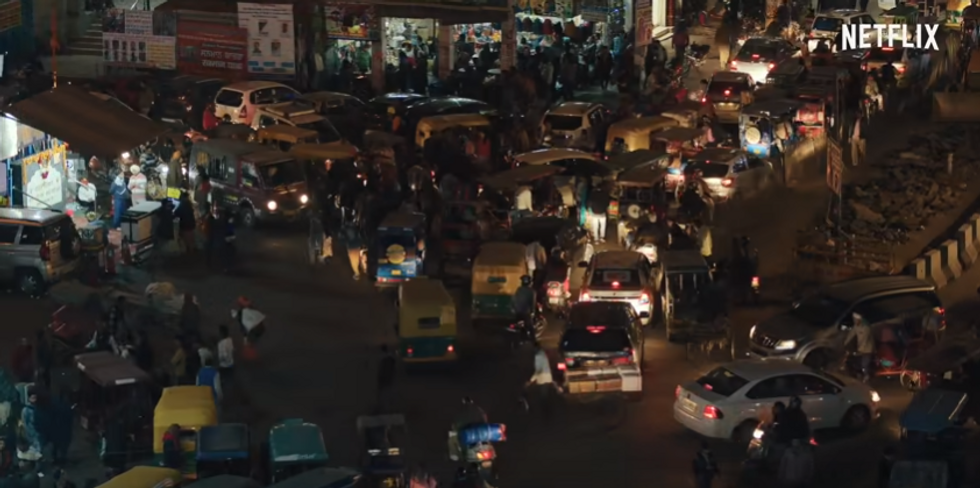The show "Delhi Crime" on Netflix is seven episodes long and only comprises of one season. Its plot is based on the true story of a gang rape case that shook India: the Nirbhaya case. For those who do not know, the Nirbhaya case was the gang rape of a college student on a bus. Names used in this article are those of the show which are not those of the real people in the case. What made this case so different from the other, many, rape cases in India was the sheer brutality of it. The girl, Deepika, was raped by six men, one of which inserted a metal rod into her body causing severe, irreparable damage... heinous, I know.
In response to this crime, the DCP of South District Delhi police, notably a woman, takes up the case immediately. Vartika Chaturvedi, the DCP, is bombarded by the incompetent local policemen who do not follow policy nor grasp the time limit on solving this case. She vows to find the suspects within the next day or so, being aware of Deepika's near-death condition and the escape of the criminals.
The show demonstrates that her being both a woman and a mother of a daughter causes her to push those around her to do their job properly and take this case far more seriously which makes me think, why? Why does it take a fed-up, enraged woman in power make all of the men in the police force to pursue this case with the severity it needs?
Realistic in its demonstration of careless mistakes of Indian police and lack of proper leadership, "Delhi Crime" captures the fragile justice system of India, starting with its police. However, Vartika also had to answer to the Judiciary who began investigating Delhi police during the active investigation. Vartika had little time to defend the institution and was given an inefficient lawyer to support her in court. On top of both all this, the Indian media published "facts" that were not verified or disclosed at any point during the investigation, making it their goal to sham Delhi police. The Indian public, sick and tired of horrific rape cases and a corrupt government, protest the Delhi police. Vartika is at her wit's end during the entire show, almost driving the case entirely on her own.
At one point, a new victim reports being robbed by the same six men shortly before Deepika was, in the middle of the Nirbhaya investigation. When Vartika asks him why he didn't report this before, he replies saying that no one would believe him or that the police would do nothing. But because of the severity of this case, he felt he could seek justice. Vartika, appalled, realizes the image of police in India.
The fact of the matter is that the inefficient justice system in India does nothing but worsen the Indian woman's search for justice. How can anyone expect justice and security if those paid to protect you don't take you seriously? Deepika, though her case seems rare, is only rare in the amount of compassion and justice she received from the police. At the end of episode seven, Vartika chats with a junior female officer saying that what happened to Deepika is not new.
Such crimes have been happening under the radar. Perhaps it was due to Vartika herself, or being in a big city, but "Delhi Crime" showed that although the police eventually caught the suspects, Indian police and media are guilty for being unreliable and fragile, when they should, in fact, be the greatest source of justice.













